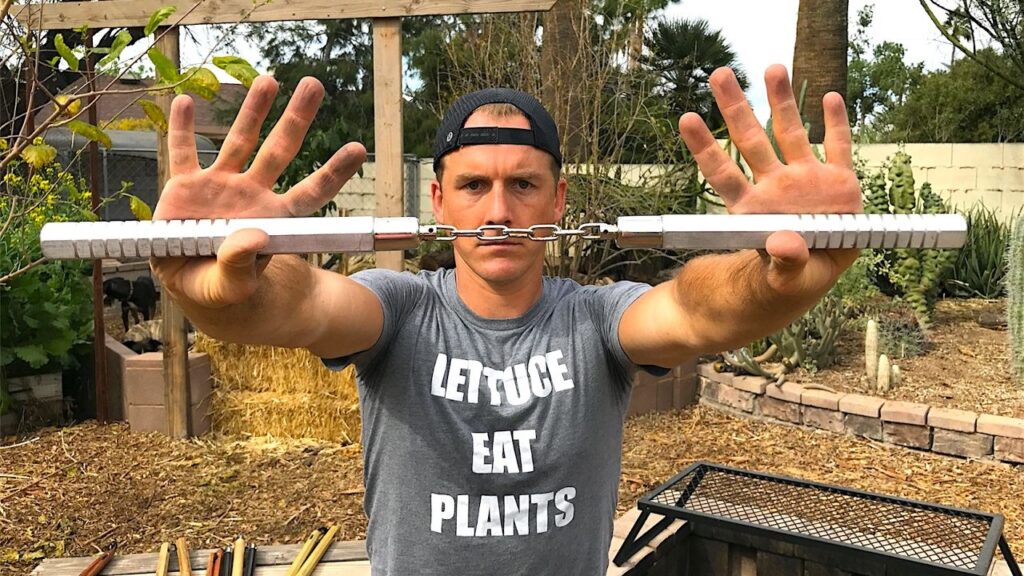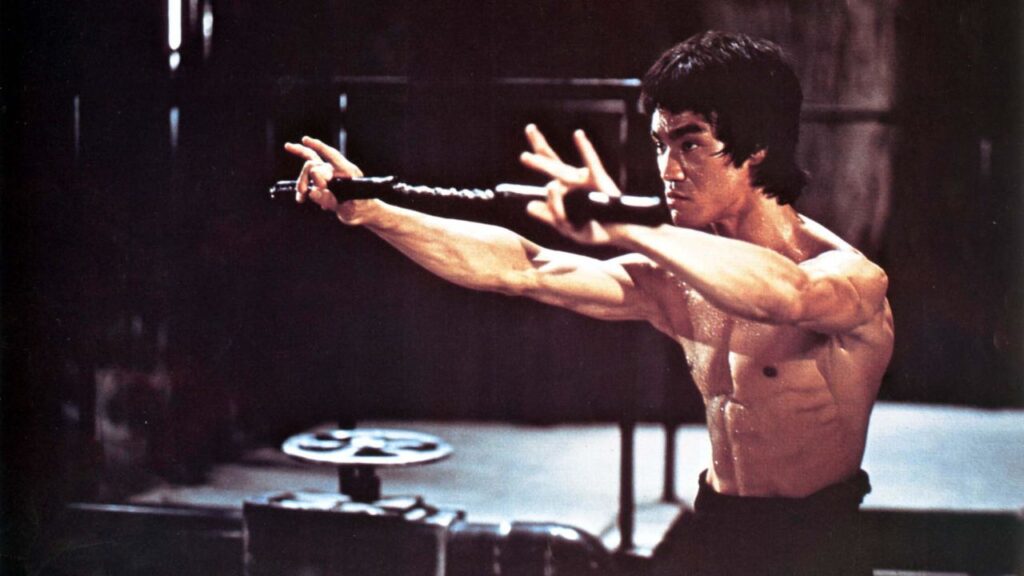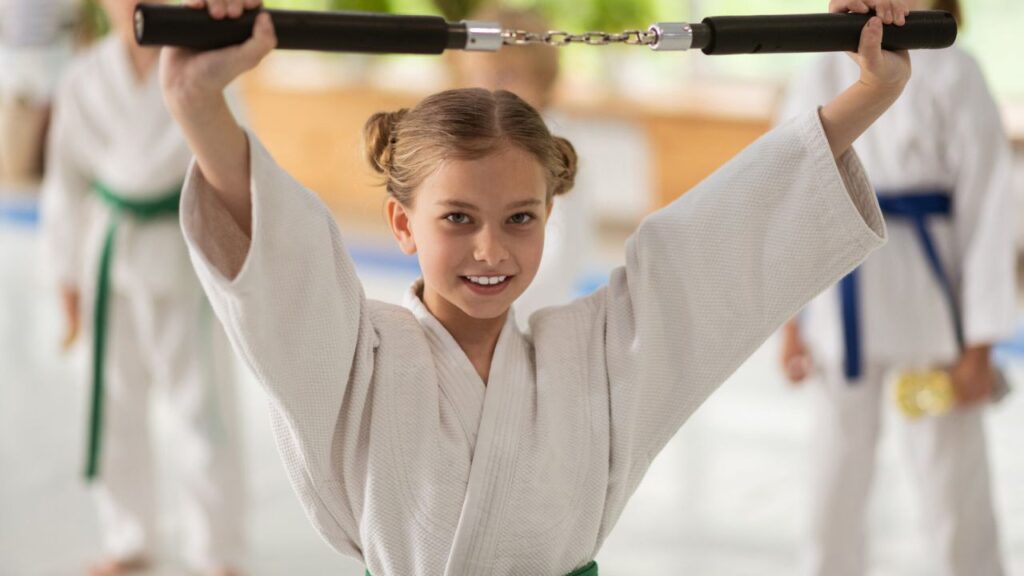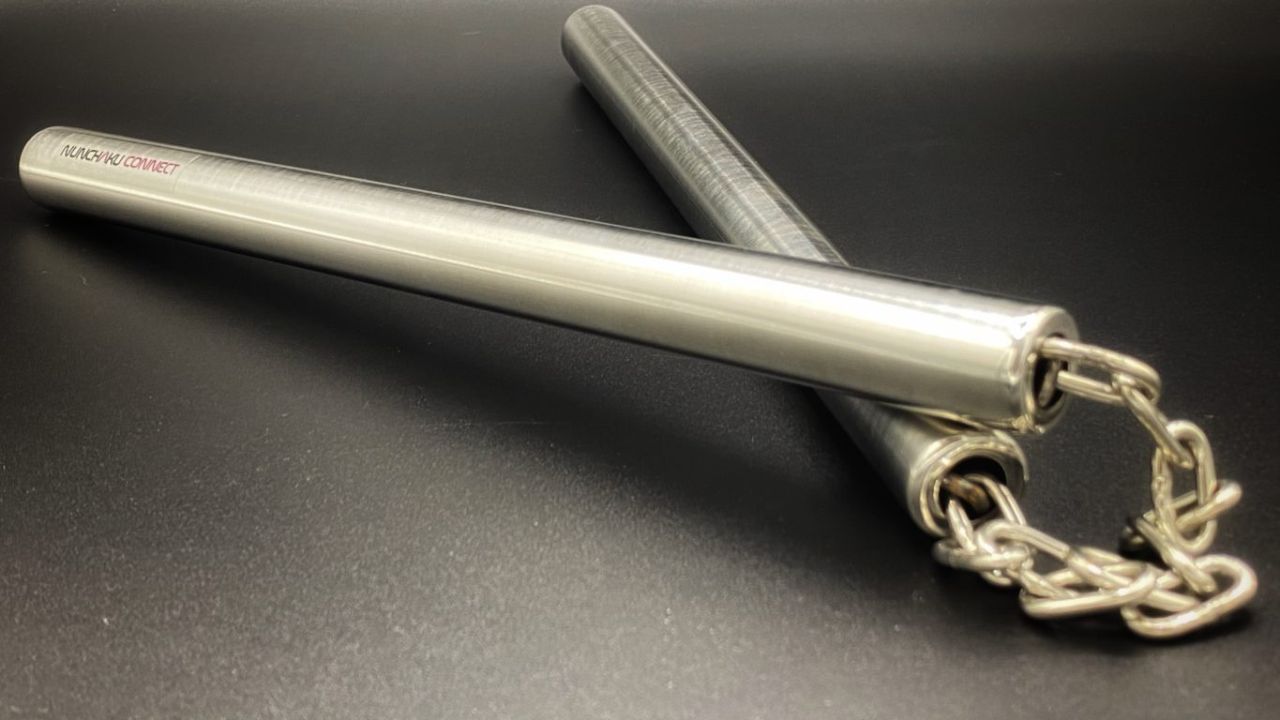Are Nunchucks Illegal In California? Nunchucks were illegal in California for decades, but a 2018 court ruling overturned the state’s ban, making them legal for personal possession and use.
Nunchucks, the iconic martial arts weapon made famous by martial arts legends like Bruce Lee, have a controversial legal history in California.
While often seen in movies and martial arts demonstrations, nunchucks have been at the center of legal battles due to concerns about their potential for violence.
For decades, they were banned in California, but a major court ruling in 2018 changed their legal status. This article dives deep into the history, the changes, and what it means for Californians today.
Contents
- 1 What Are Nunchucks?
- 2 History of Nunchucks Ban in California
- 3 The 2018 Court Ruling
- 4 Current Legal Status of Nunchucks in California
- 5 Why Did the Ban on Nunchucks Change?
- 6 Are Nunchucks Legal in Other States?
- 7 Final Verdict
- 8 FAQs
- 8.1 Why were nunchucks banned in the first place?
- 8.2 Can you openly carry nunchucks in public in California?
- 8.3 Are there any age restrictions for owning nunchucks in California?
- 8.4 Are nunchucks considered a weapon under California law?
- 8.5 What should you do if you’re caught with nunchucks in a restricted area?
- 9 Conclusion: Are Nunchucks Illegal In California?
What Are Nunchucks?
Definition and Description
Nunchucks, or nunchaku, are a traditional Okinawan weapon made of two sticks connected by a short chain or rope. [Are Nunchucks Illegal In California?]
The sticks are typically made of wood or metal, while the chain or rope is designed to be flexible, allowing for a wide range of motion.
Historically, they were derived from a farming tool used to thresh rice or soybeans, but they later evolved into a self-defense weapon in martial arts.
Uses of Nunchucks
Nunchucks are primarily used in martial arts such as karate and kobudo, where they are employed to improve hand-eye coordination, speed, and precision.
In modern contexts, nunchucks are used for demonstrations, competitions, and even fitness training, as their use demands agility, strength, and focus.
Beyond martial arts, nunchucks have become a cultural symbol, appearing in films, video games, and comics, often associated with skill, dexterity, and combat prowess.

History of Nunchucks Ban in California
Initial Ban
California first banned nunchucks in 1974, amid a wave of martial arts popularity fueled by movies and television shows. [Are Nunchucks Illegal In California?]
Lawmakers perceived nunchucks as a significant public safety threat, especially when used by street gangs and in violent crimes. The state classified nunchucks as dangerous weapons, similar to other restricted items like brass knuckles, blackjacks, and switchblades.
The ban was codified in California Penal Code Section 22010, which prohibited the manufacture, import, sale, and possession of nunchucks.
This ban was one of the strictest in the United States, making it a criminal offense to possess or use nunchucks for any purpose, even martial arts training, unless specifically exempted.
Legal Battles
Over the years, the ban faced legal challenges from martial artists, enthusiasts, and civil rights advocates who argued that it infringed upon their constitutional rights. They contended that the law was overly broad, criminalizing the use of a tool primarily used for peaceful purposes like sport and training.
Critics also highlighted that the ban unfairly targeted a specific group — martial artists — without substantial evidence that nunchucks posed a unique threat compared to other sporting equipment.
One of the pivotal arguments against the ban was that it violated the Second Amendment of the U.S. Constitution, which protects the right to keep and bear arms. [Are Nunchucks Illegal In California?]
Although nunchucks are not firearms, advocates argued that they should be considered arms under the broader definition, especially when used for self-defense and sports.
The 2018 Court Ruling
Details of the Ruling
In December 2018, the federal court case Maloney v. Singas played a crucial role in changing the legal status of nunchucks in California. U.S. District Judge Roger T. Benitez ruled that the state’s ban on nunchucks was unconstitutional, violating the Second Amendment.
Judge Benitez stated that the law was overly broad and that nunchucks were predominantly used in lawful martial arts practice rather than criminal activity.
The judge’s decision was based on several factors, including the historical use of nunchucks in self-defense and sport, the absence of substantial evidence linking nunchucks to a significant rise in crime, and the recognition that martial arts weapons like nunchucks are protected under the constitutional right to bear arms.
Impact of the Ruling
The 2018 ruling effectively made it legal for individuals in California to possess, manufacture, sell, and transport nunchucks for personal and professional use.
Martial arts schools, instructors, and practitioners celebrated the decision, as it meant they could legally use nunchucks for training, competition, and demonstrations without fear of prosecution.
However, while the ruling lifted the statewide ban, it did not eliminate all restrictions. The use of nunchucks in a threatening manner or in the commission of a crime remains illegal.
The ruling primarily focused on allowing lawful possession and use, particularly in private or controlled environments. [Are Nunchucks Illegal In California?]

Current Legal Status of Nunchucks in California
Personal Possession
Today, Californians are allowed to own nunchucks for personal use, including martial arts practice, training, and display within their homes or private property.
Martial arts schools and dojos can also possess and use nunchucks in training sessions and demonstrations, provided they adhere to safety guidelines and ensure the weapons are not used recklessly or unlawfully.
Public Use and Restrictions
While personal possession is now legal, public use is still subject to significant restrictions. Carrying nunchucks in public places, such as parks or streets, may attract law enforcement scrutiny, particularly if they are used in a manner perceived as threatening. Using nunchucks to intimidate, harass, or threaten others is still prohibited and can result in criminal charges.
Furthermore, certain public events or locations, like airports, schools, and government buildings, may have their own rules banning weapons, including nunchucks.
It’s crucial for individuals to be aware of local regulations and ensure they comply to avoid any legal issues. [Are Nunchucks Illegal In California?]
Legal Penalties
Although the 2018 ruling has decriminalized the private possession of nunchucks, using them unlawfully can still lead to severe consequences. Penalties can range from fines to imprisonment, depending on the severity of the offense.
For example, using nunchucks in an assault could lead to charges of assault with a deadly weapon, which carries significant penalties under California law.

Why Did the Ban on Nunchucks Change?
Arguments for Legalization
Proponents of the ban’s reversal argued that nunchucks are primarily tools for sports and self-defense, not inherently dangerous weapons.
They highlighted that thousands of martial artists across the country use nunchucks safely and responsibly in controlled settings. The ban was seen as an overreach that criminalized otherwise lawful activities.
Furthermore, advocates pointed out that other, potentially more dangerous weapons, such as knives or baseball bats, are not banned despite their capacity for harm.
The inconsistency in the treatment of nunchucks, they argued, was unfair and not based on empirical evidence.
Cultural and Societal Shifts
The decision to overturn the ban also reflects changing societal views. As martial arts have grown in popularity, there has been a shift in perception regarding traditional weapons like nunchucks.
They are increasingly seen as cultural artifacts and sporting equipment rather than threats to public safety. [Are Nunchucks Illegal In California?]
Media portrayal of martial arts, combined with the discipline’s focus on respect, skill, and self-control, has helped shift public opinion in favor of legalization.
Are Nunchucks Legal in Other States?
Comparison with Other States
While nunchucks are now legal in California, their status varies widely across the United States. Some states, like Arizona and Utah, have no specific restrictions on nunchucks, treating them like any other sporting equipment.
Others, like New York, still classify them as dangerous weapons, imposing strict regulations on their possession and use.
The differences between state laws can be confusing, especially for martial artists who travel frequently. It’s important for practitioners to familiarize themselves with local laws to avoid inadvertently violating state or municipal regulations.
Federal vs. State Laws
Under U.S. federal law, there is no specific prohibition on nunchucks, but states have the authority to enact their own rules. [Are Nunchucks Illegal In California?]
In states where nunchucks are banned or heavily regulated, possessing or using them could result in legal consequences regardless of federal law.
Practitioners must always consider both state and federal regulations to ensure they remain compliant.
Final Verdict
Nunchucks are legal for personal possession and use in California following the 2018 court ruling, which overturned the previous ban.
However, public use and certain restrictions still apply, and the misuse of nunchucks can result in legal penalties.
Individuals interested in using nunchucks should remain aware of these regulations and exercise caution when handling them in public or sensitive areas.
FAQs
Why were nunchucks banned in the first place?
Nunchucks were banned in 1974 due to concerns about their use in violent crimes and their perceived threat to public safety during a time when martial arts weapons were growing in popularity.
Can you openly carry nunchucks in public in California?
No, carrying nunchucks in public or using them in a threatening manner can still result in legal penalties, even after the 2018 court ruling. [Are Nunchucks Illegal In California?]
Are there any age restrictions for owning nunchucks in California?
While there are no specific state-imposed age restrictions, minors may require supervision while using nunchucks, particularly in formal training environments.
Are nunchucks considered a weapon under California law?
Yes, nunchucks are considered a weapon, but they are legal for personal possession and martial arts training within the scope of the law.
What should you do if you’re caught with nunchucks in a restricted area?
Cooperate with law enforcement and understand that possessing nunchucks in restricted areas may lead to confiscation, fines, or other penalties.
Conclusion: Are Nunchucks Illegal In California?
The journey of nunchucks from a banned weapon to a legally recognized martial arts tool in California illustrates the evolving landscape of weapon laws in the United States.
While they are now legal for personal use, it remains crucial to stay informed and adhere to state regulations to ensure compliance. [Are Nunchucks Illegal In California?]

Hello guys, I’m Trey Simpson from Los Angeles. After completing my J.D., I noticed a lack of clear information online about laws in different U.S. states. So, I created this blog to help. Now, I’m a lawyer and continue blogging. Thanks for visiting!

